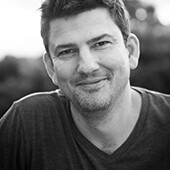From education and health care, to access to credit and the rule of law, a host of factors that influence quality of life depend simply on which side of a border a person is born on. Yet what could be more arbitrary, morally speaking, than where a person happens to be born?
There is no denying that international borders—coercively upheld and protected-are a huge factor in determining the distribution of wealth and opportunities throughout the world. From education and health care, to access to credit and the rule of law, a host of factors that influence quality of life depend simply on which side of a border a person is born on.
Yet what could be more arbitrary, morally speaking, than where a person happens to be born? And why is it that inequality and poverty traceable back to this factor is generally considered less objectionable than deprivations that result from factors such as race, ethnicity or gender?
To get a grip on these questions, Public Ethics Radio discussed immigration and citizenship policies with Christopher Heath Wellman.
Wellman is Professor of Philosophy at Washington University in St. Louis, and a Professorial Research Fellow at Charles Sturt University in the Centre for Applied Philosophy and Public Ethics, an Australian Research Council Special Research Centre. His views on immigration are also set out in his recent, "Immigration and Freedom of Association," Ethics 119, no. 1 (2008): 109-141.





